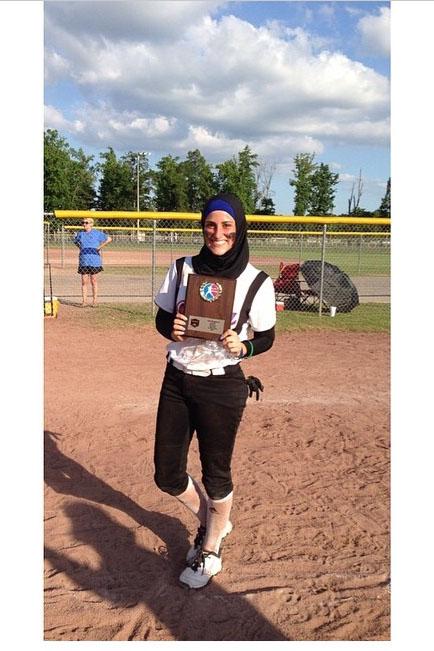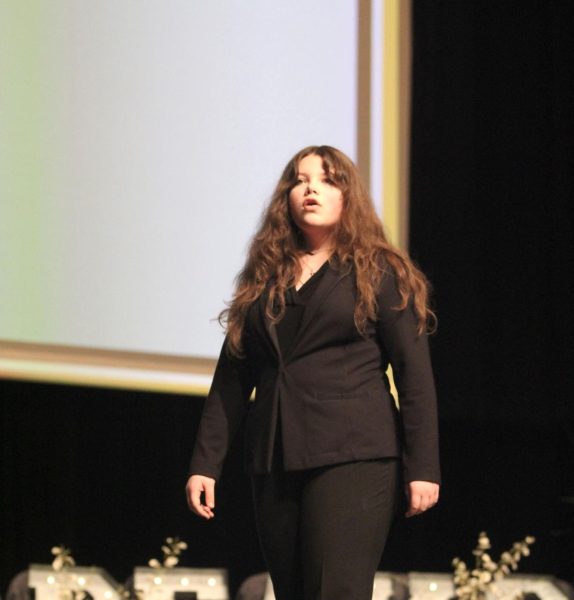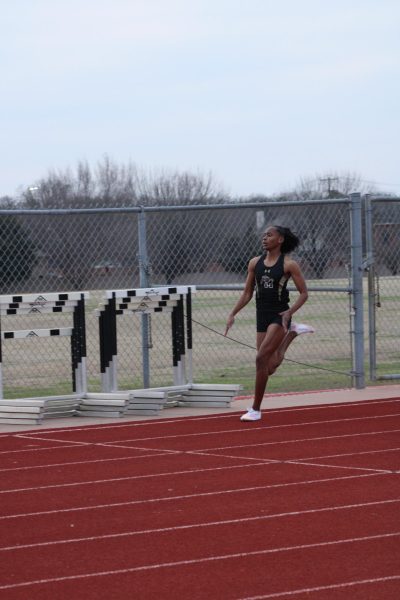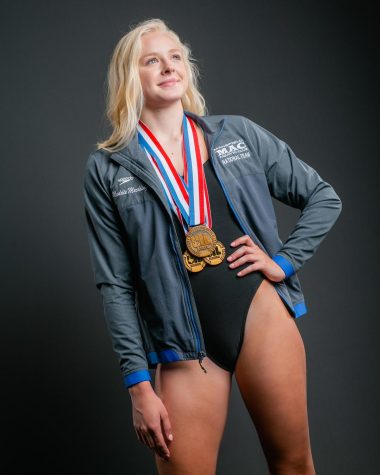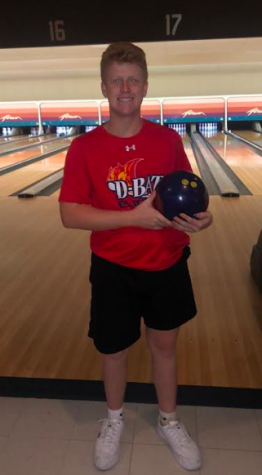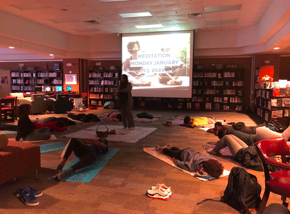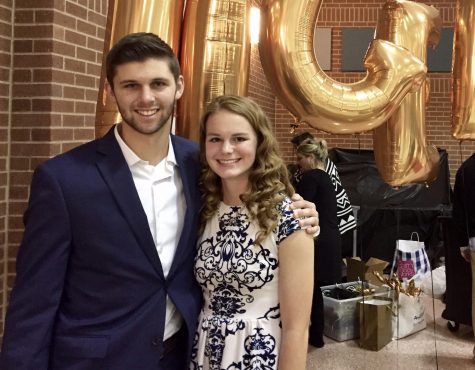Student Profiles: Medina Barakat
Athleticism runs in freshman Medina Barakat’s family. Her older brother played baseball, her older sister played softball and was involved with color guard, so naturally it was a simple decision for her to follow in their footsteps. Due to Barakat’s Muslim faith, she stands out just a little bit more both on and off the field.
“I started wearing the hijab on February 18, 2011,” Barakat said. “It was a big moment and I was in the middle of fifth grade. I’ve wanted to wear it since I was in first grade, but my mom told me that I was too young. It makes since now that I think about it, but I have always wanted to wear it and to make a difference and be different.”
The purpose of wearing a hijab is because Muslims view the hijab as a form of modesty when around other non-family members, especially men.
“It’s to be more modest and cover all you have for only your husband,” Barakat said. “That’s why I wear long sleeves and long pants and everything to cover myself so only my husband can see what I have. It’s for him only.”
Despite the fact that some non-Muslims view the hijab as a sign of oppression, Muslim women have the choice of wearing the hijab and are not forced to wear one.
“[The hijab is] part of my religion so I just chose to follow it more,” Barakat said. “My mother doesn’t wear it, but my older sister chose to, so I chose to do it like her. And it makes me different. I stand out, college coaches recognize me more, and it makes me more noticeable.”
Barakat has been involved with softball since she was four years old and has been involved with color guard since she was in seventh grade. In addition to wearing her hijab with her uniforms, she has to wear long sleeves for the sake of modesty, even during summer practices in the notorious Texas heat.
“I wear long sleeves and yoga pants, so I guess it’s a little harder, but you get used to it,” Barakat said. “People respect you for it, they’re like ‘wow, if she can do it wearing all that then I have to be able to do it.'”
Even though Barakat chooses to wear a few extra layers of clothing than other people, she ultimately enjoys the opportunity she has to prove to spectators that she is just like everyone else.
“It draws attention to people so that they don’t think that Muslims just sit around at home and do nothing or that they’re oppressed women,” Barakat said. “I’m just like everyone else and it shows that I can do things and can play sports and all that stuff.”
Unfortunately, standing out more than her teammates has put Barakat in instances where she was ostracized for her religion.
“You get stares and umpires who are not fair to you,” Barakat said. “I had one team this summer and the whole team didn’t give me a high five after the game. I was whatever about it. I sat quietly and a coach behind me noticed so she went to the other coach and they came and apologized and started crying so I started crying. The whole team had to give me a hug. It made a statement not to discriminate.”
Even though Barakat has been through several instances where her choice to wear a hijab was put to the test, she ultimately insisits that she is just like your typical teenager.
“There are quotes that say ‘why can a nun cover her body in devotion to God, but when a Muslim person does it she’s oppressed?’ There is literally no difference,” Barakat said. “I still play sports, I still come to school, I still hang out with people and I still do all that stuff, I’m just modest about it. I’m just like everyone else.”


